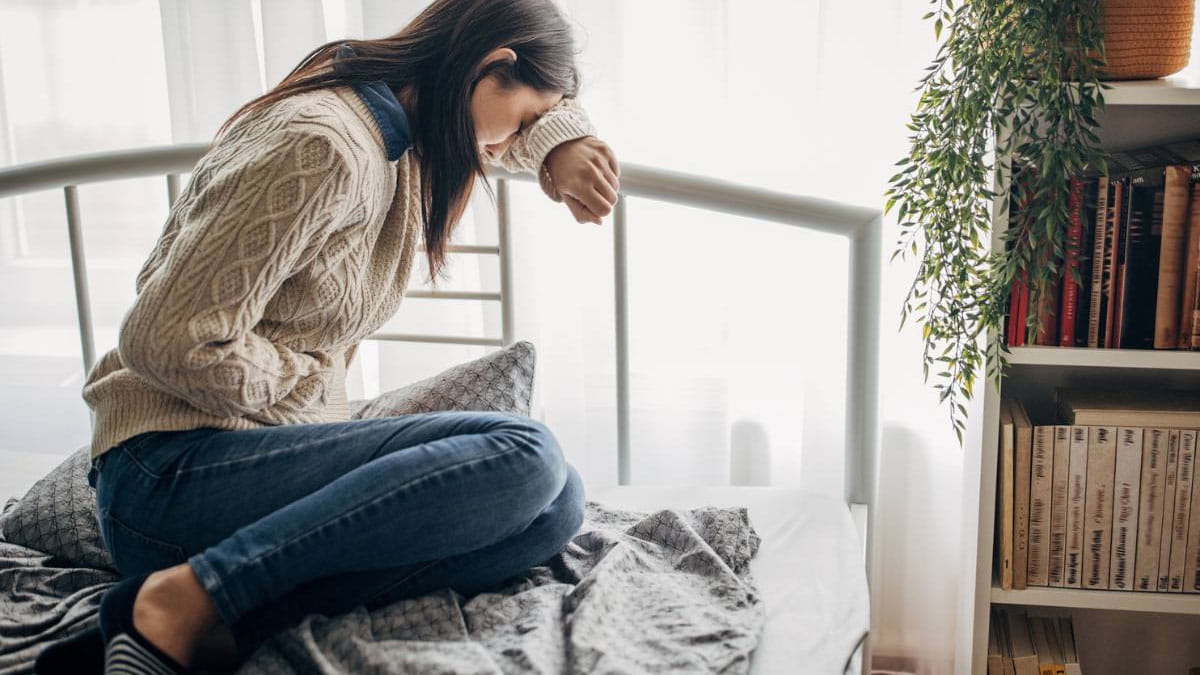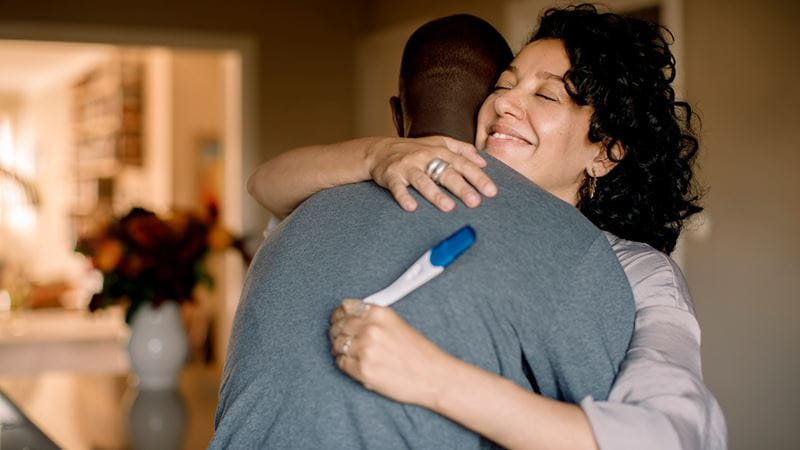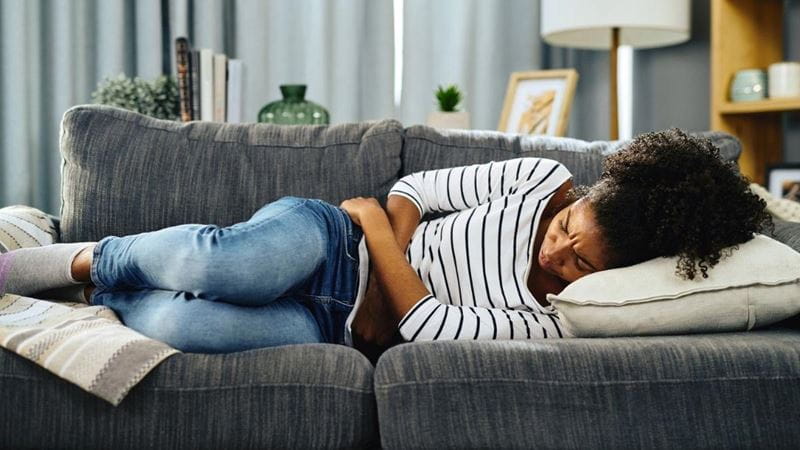Blog article
Endometriosis: What is it, how private health can help, and the 5 F’s to add to your diet

We’ve come a long way from seeing women’s pain as ‘normal,’ but what more can we do to help people experiencing endo live life to the fullest? Lora Attia, an accredited practising dietitian specialising in reproductive health with Nutrition Plus, helps us explain more.
In this article
- What is endometriosis?
- What are the symptoms of endometriosis?
- Getting diagnosed with endometriosis
- How is endometriosis treated?
- Endometriosis and diet
- What specialist should you see
What is endometriosis?
According to Lora, endometriosis (sometimes called ‘endo’) is a chronic inflammatory disorder affecting about 1 in 7 or 14% of women in Australia. Endometriosis happens when the ‘endometrium’ – cells similar to those that line the womb – grow outside the uterus.1
When endometrial-like cells outside the uterus respond to hormonal signals from the ovaries, they break down and bleed during menstruation. Because this blood cannot exit the body, it triggers inflammation and, over time, can lead to scarring (adhesions) in those areas. This process can cause chronic pain and sometimes fertility issues.1
There is currently no cure, and diagnosis can sometimes take several years, according to Lora.2
What are the symptoms of endo?
The severity of symptoms differ from woman to woman1, but might include:3
- abdominal pain
- heavy periods
- bleeding from the bladder or bowel
- feeling bloated
- fatigue
- anxiety or depression
- infertility
There are effective treatments and ways to help relieve some symptoms.1
Getting diagnosed with endo (especially for younger women)
Endometriosis can only be officially diagnosed with laparoscopic keyhole surgery.1 But Attia says that seeing a good doctor and starting the process early for young women with pelvic pain can be key.
‘Some women are hesitant to get surgery, so that can be a barrier to finding out if you have endo, particularly if you're younger. It may feel a little frightening and invasive,’ she says.
‘You may first be given a referral to do a pelvic exam, or an MRI, or an ultrasound, or perhaps be referred to a gynaecologist, before a laparoscopic procedure.’
‘For a woman who isn't sexually active, having a pelvic exam will usually be avoided, but your medical team will advise what is best for you,’ says Attia.
How is endo treated?
Your treating doctor may recommend different treatments depending on your symptoms and situation.
Your doctor may recommend:4
- pain relief medications
- hormone therapy medications such as combined contraceptives, progestogens (as realised with an IUD or taken as a daily pill)
- some anti-depressant medications are used to treat endo are used to manage symptoms
According to Jean Hailes and their research, surgery by laparoscopy is an effective way to treat endometriosis. But a combination of surgery and hormone therapy can improve outcomes.
What about diet?
While there is no evidence that nutrition influences endometriosis directly, a healthy diet and lifestyle is important for overall wellbeing and it is important to strive to be as healthy as possible.
Attia suggests that her endo clients focus on a Mediterranean diet.
“The Mediterranean dietary pattern is rich in seafood, with a high intake of vegetables, fruits, whole grains, legumes, nuts, seeds, and olive oil. It has a higher consumption of healthy fats that reduce inflammation” says Attia.
Attia asks her clients to focus on the "5 Fs".
-
Fruit & Veg
Attia encourages her clients to increase their fruit and veg intake, particularly having more colour on the plate at mealtimes.
“Colour means more antioxidants”.
-
Fibre and plant foods
Mediterranean and vegetarian dietary patterns are rich in plant foods, high in fibre and are associated with reduced severity of endometriosis. It is thought that fibre interferes with the reabsorption of oestrogen reducing circulating oestrogen and its impact on endometrial growth. Aim to eat plenty of legumes, whole grains, nuts and seed, fruit and vegetables with a goal of getting 30 grams of fibre a day.
-
Foliage – cruciferous vegetables
Focus on cruciferous – or Brassica – vegetables.’ Cruciferous and Brassica vegetables include:
- Bok choy
- Brussels sprouts
- Rocket
- Broccoli
- Cabbage
- Cauliflower
-
Fat
“The Mediterranean diet is a lot higher in healthy fats than in the Western diet, and it uses Extra Virgin Olive Oil in cooking and salad dressing. Those fats have been shown to be beneficial for heart health, inflammation, and good levels of antioxidants and vitamin E.”
-
Fish
Fish is good for the anti-inflammatory properties that can potentially help reduce inflammation caused by endo.
Attia says the best sources of these Omega 3 and 6 goodies are:
- Salmon
- Mackerel
- Tuna
- Sardines
- and (to a lesser degree) walnuts and chia seeds.
Endometriosis, IBS, and the low FODMAP diet
Lora Attia says that women with Endo are 2.5 times more likely to have symptoms of Irritable Bowel Syndrome (IBS). If you are experiencing IBS symptoms, Attia recommends a low FODMAP dietary pattern (not a ‘diet’) for IBS sufferers with the assistance of a dietician.
The FODMAP diet was developed by Monash University and has been successfully used by endo patients that also suffer from IBS.5
“There is a high co-occurrence [of endo] with IBS,” says Attia. “The FODMAP diet has three stages, and can work best when assisted by a dietitian. Our role is to help women to understand and use the diet successfully.”
What specialist should you see, and how can private health insurance help you seek a diagnosis?
If you’re seeking diagnosis, having private health insurance allows you to choose between going public or private.
- The benefit of having private health insurance means you may be able to meet with a specialist within a shorter time period and based on your symptoms be booked in for surgery in a shorter time period.
This all depends on the specialists and hospital’s availability of booking a treatment. The first step is always seeing your GP - you will most likely be referred by your GP to see a gynaecologist.
- With some Extras cover you could also be covered to see specialists who can support you while managing your symptoms and your wellbeing including nutritionists, dietitians, exercise physiologists, acupuncturists and psychologists.
Visit myHBF to see what you're covered for or call us on 133 423.
A visual guide to Women's Health
Extra info and support from Endometriosis Australia
For supportive resources, including the podcast ‘Living with Endo’ – Endometriosis Australia is a great place to start.
1 Health Direct - Endometriosis
2 Nutrition Plus - Meet the team
3 Health.Gov - What we're doing about endometriosis
4 Jean Hailes - Management and treatment
5 Monash Fodmap - Starting the low FODMAP diet
This article contains general information only and does not take into account the health, personal situation or needs of any person. In conjunction with your GP or treating health care professional, please consider whether the information is suitable for you and your personal circumstances.



